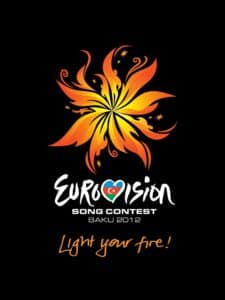 On Saturday, millions of people will be watching the Eurovision Song Contest on television. They will probably not notice the human rights violations, the suppression of freedom of expression and the agitation against homosexuals. Elmar Kraushaar on developments and the situation in Azerbaijan shortly before the ESC.
On Saturday, millions of people will be watching the Eurovision Song Contest on television. They will probably not notice the human rights violations, the suppression of freedom of expression and the agitation against homosexuals. Elmar Kraushaar on developments and the situation in Azerbaijan shortly before the ESC.
No one will want to claim that homosexuality is no longer an issue in Azerbaijan. On the contrary: the most recent example from the host country of this year's Eurovision Song Contest (ESC) happened on 17 May, which is celebrated in Western countries as "International Day against Homophobia". In Baku, the news website "ESCtoday" was hacked by homo-haters and the work from 12 years ago was deleted in seconds. Instead, the following text was placed on the site: "There is no place for immoral gays in Azerbaijan. Leave our country. No place in Azerbaijan for gays who look like animals."
Fear of "faggots and perverts": no gay parade at the ESC
This hacker attack is the latest in a series of anti-gay attacks that all relate to the ESC. The fact that the festival traditionally attracts a gay fan base from all over Europe has of course spread to Azerbaijan and is just as well known in the neighbouring country to the south, Iran. A few weeks ago, a prominent Shia preacher warned the government in Baku at Friday prayers in the northern Iranian city of Tabriz, the centre of Iranian Azerbaijan, not to allow an alleged gay parade during the ESC. "The planned party and parade will attract anti-Islamic forces and perverts." Other countries would not allow these perverts and faggots to hold their parade.
The preacher's fanatical words led to demonstrations in Tabriz and Astara, where hundreds of believers gathered and chanted: "Azerbaijan is a Muslim state and no place for faggots!" These protests in turn galvanised opponents of Iran in Azerbaijan, who gathered in front of the Iranian embassy in Baku a few days later and displayed banners warning against "homosexual Iranian mullahs", for whom there was no place in Azerbaijan. With a view to the ESC, the predominantly student demonstrators proclaimed that their home country is a tolerant, secular country: "We are demonstrating our unity and equality with all nations taking part in the ESC."
"We are not ready for this yet"
The rumour that the ESC would be used as an opportunity for a gay parade in Baku emerged in public at the end of 2011. Members of the Azerbaijani government immediately denied the rumour. But there was also immediate opposition from the gay side. "We are not ready for this yet," said Kamran Rzajev from the organisation "Gender and Development", and Ruslan Balukhin from the website "gay.az" spoke of a "terrible idea": "None of Baku's lesbians and gays even dream of such demonstrations or parades."
In fact, the situation for the gay and lesbian community in Azerbaijan is far from rosy. Even though there has been no legal action against them for years, homosexuals have a hard time in the country, which is both Soviet and Muslim-dominated. They mainly live their lives in hiding, in private and without official meeting places. "It reminds me of stories from post-war Germany," says a gay businessman from Berlin who has been working in Baku for years. In the latest ILGA report on the human rights situation of gays and lesbians, the country on the Caspian Sea ranks at the bottom of the list, just ahead of Russia and Moldova. "Homosexuality is considered worse than prostitution," explains human rights activist Jadigjar Sadjkov. "If a family decides to kill their gay son, it is generally welcomed."
Azerbaijan: A tolerant place?
There are now facilities in Baku such as the "Club Benua", which offers help to homosexuals who feel marginalised in this culture with strong religious traditions or who are also exposed to violence in their Muslim families. "But society doesn't talk about homosexuality," says a 19-year-old gay man in an interview with the weekly newspaper "Zeit". "It doesn't respect us as individuals, it insults us." However, even the presidential administration is open and enlightened about the onslaught of gay fans from all over Europe at the ESC: "Azerbaijan is a tolerant place. We don't care who is gay and who isn't," Ali Gassanov, head of the department for socio-political issues, told a reporter from the dpa news agency. And yet others are once again warning ESC guests not to kiss in the street or flaunt their homosexuality in particular.
The autocratic government of Azerbaijan is using the ESC to present itself as cosmopolitan and westernised and has spent huge amounts of money on the musical propaganda show. It has even been chalking up the days of the festival to homosexuality. But there is nothing to suggest that the good mood will continue after the ESC circus has left. In the fight against opposition members and political opponents, every prejudice and resentment is still needed. "That's why," explains human rights activist Rasul Jafarov, "the government is not at all interested in granting lesbians and gays their rights."









